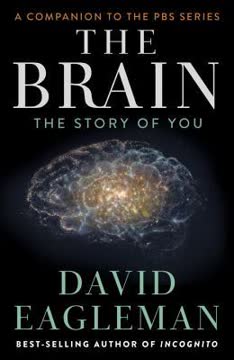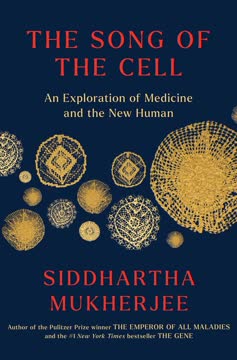Key Takeaways
1. The brain: A complex, adaptable organ shaping our reality
The brain is not the mind, the mind inhabits the brain. Like a ghost in a machine, some say. Mind is the comforting mirage of the physical brain.
Intricate neural networks. The human brain contains approximately 100 billion neurons, each capable of forming up to 10,000 connections with other neurons. This vast network of cells communicates through electrical and chemical signals, creating the complex patterns that underlie our thoughts, emotions, and behaviors.
Reality as a construct. Our perception of the world is not a direct representation of external stimuli, but rather a carefully crafted interpretation by the brain. This process involves filtering, organizing, and attributing meaning to sensory information based on past experiences and expectations. The brain's ability to create a coherent reality from incomplete or ambiguous data is both a strength and a potential source of misinterpretation.
2. Evolution of consciousness: From primitive survival to self-awareness
We are something we can't know.
Survival advantages. The development of consciousness provided early humans with significant evolutionary benefits. The ability to reflect on past experiences, anticipate future outcomes, and understand the mental states of others enhanced problem-solving skills, social cooperation, and adaptive behaviors.
Emergence of self-awareness. As the brain evolved, it developed increasingly sophisticated mechanisms for processing information and regulating behavior. This gradual progression led to the emergence of self-awareness, allowing humans to:
- Recognize themselves as distinct individuals
- Reflect on their own thoughts and actions
- Contemplate abstract concepts like time, morality, and existence
- Engage in complex social interactions and cultural practices
3. Memory: The foundation of identity and decision-making
Memories inform our actions, keep us company, and give us our noisy, ever-chattering sense of self.
Types of memory. The brain employs various memory systems to store and retrieve information:
- Sensory memory: Brief storage of perceptual information
- Short-term memory: Temporary holding of information for immediate use
- Long-term memory: Enduring storage of knowledge and experiences
- Procedural memory: Unconscious retention of skills and habits
- Episodic memory: Personal experiences and events
- Semantic memory: General knowledge and facts
Memory and identity. Our memories shape our sense of self and influence our decision-making processes. The brain constantly updates and reorganizes stored information, creating a dynamic interplay between past experiences and current circumstances. This process allows us to learn from mistakes, adapt to new situations, and maintain a coherent personal narrative.
4. Emotions: Ancient survival tools in a modern world
We are the animal that elaborates.
Evolutionary purpose. Emotions evolved as rapid, automatic responses to environmental stimuli, promoting survival and reproductive success. Basic emotions like fear, anger, and joy are universal across cultures and serve essential functions:
- Fear: Alerts us to potential dangers and prepares the body for fight-or-flight responses
- Anger: Mobilizes resources to overcome obstacles and defend against threats
- Joy: Reinforces beneficial behaviors and strengthens social bonds
Modern challenges. In today's complex societies, our emotional responses often seem mismatched to the situations we encounter. The brain's limbic system, responsible for emotional processing, can overwhelm rational thought processes in the prefrontal cortex. This mismatch can lead to:
- Anxiety disorders
- Chronic stress
- Emotional decision-making in contexts where logic might be more appropriate
- Difficulty regulating emotions in social situations
5. Language: The brain's unique ability to communicate and create
We are the animal who points and names.
Neural basis of language. The human brain has specialized regions dedicated to language processing, including:
- Broca's area: Involved in speech production and language comprehension
- Wernicke's area: Critical for understanding written and spoken language
- Arcuate fasciculus: A neural pathway connecting these regions
Cognitive and social impacts. Language profoundly shapes our cognitive abilities and social interactions:
- Enables abstract thought and complex problem-solving
- Facilitates the transmission of knowledge across generations
- Allows for the creation and sharing of cultural practices and beliefs
- Supports the development of empathy and theory of mind
6. Creativity and intelligence: The brain's capacity for innovation
We use words like small hand axes.
Neural foundations of creativity. Creative thinking involves the interaction of multiple brain networks, including:
- Default mode network: Associated with mind-wandering and imagination
- Executive control network: Involved in focusing attention and evaluating ideas
- Salience network: Helps identify relevant information and switch between different modes of thinking
Factors influencing creativity and intelligence:
- Genetic predisposition
- Environmental influences (education, exposure to diverse experiences)
- Brain plasticity and neurogenesis
- Emotional state and motivation
- Cultural context and societal values
7. The social brain: Empathy, relationships, and cultural influence
We are communal histories, communal books.
Mirror neuron system. This network of neurons activates both when we perform an action and when we observe others performing the same action. The mirror neuron system is thought to play a crucial role in:
- Empathy and understanding others' emotions
- Imitation and learning
- Social cognition and theory of mind
Cultural shaping of the brain. Our social environments and cultural practices significantly influence brain development and function:
- Language acquisition shapes neural pathways
- Cultural values impact decision-making processes
- Social relationships affect stress responses and overall brain health
- Collective beliefs and practices shape individual perceptions and behaviors
8. Neuroplasticity: The brain's lifelong ability to change and adapt
Every teacher is a brain surgeon, a scary thought . . . every teacher is making little dendrites sprout and connect up neurons.
Mechanisms of neuroplasticity:
- Synaptic plasticity: Strengthening or weakening of connections between neurons
- Neurogenesis: Formation of new neurons, particularly in the hippocampus
- Pruning: Elimination of unnecessary neural connections
- Reorganization: Recruitment of brain regions for new functions
Implications for learning and recovery. The brain's plasticity has significant implications for:
- Education and skill acquisition throughout life
- Recovery from brain injuries and strokes
- Treatment of mental health disorders
- Cognitive maintenance in aging populations
9. Consciousness: The ongoing mystery of self-awareness
Consciousness is the great poem of matter.
Theories of consciousness. Various theories attempt to explain the nature of consciousness:
- Global Workspace Theory: Consciousness arises from the broadcasting of information across the brain
- Integrated Information Theory: Consciousness is an intrinsic property of complex information processing systems
- Higher-Order Thought Theory: Consciousness requires meta-cognitive awareness of one's own mental states
Challenges in studying consciousness:
- Subjective nature of conscious experience
- Difficulty in distinguishing between conscious and unconscious processes
- Ethical considerations in experimental design
- Limitations of current neuroimaging technologies
10. The future of neuroscience: Ethical considerations and potential breakthroughs
We are the animal that studies itself.
Emerging technologies. Advancements in neuroscience research tools offer new insights into brain function:
- Optogenetics: Precise control of neural activity using light
- Brain-computer interfaces: Direct communication between the brain and external devices
- CRISPR gene editing: Potential for treating genetic neurological disorders
- Artificial intelligence: Modeling complex neural networks and brain processes
Ethical considerations. As our understanding of the brain grows, so do ethical concerns:
- Privacy and mental freedom in the face of advanced brain-reading technologies
- Cognitive enhancement and its impact on society
- Neurodiversity and the definition of "normal" brain function
- Implications of artificial consciousness and machine rights
Last updated:
Review Summary
An Alchemy of Mind receives mixed reviews. Some praise Ackerman's lyrical prose and insightful exploration of the brain, finding it fascinating and thought-provoking. Others criticize the excessive use of metaphors and lack of scientific rigor. Many appreciate the poetic approach to neuroscience, while some find it unfocused and self-indulgent. The book covers topics like consciousness, memory, emotions, and creativity. Readers generally agree it's not a conventional science book but rather a unique blend of poetry and neuroscience that can be either captivating or frustrating.
Similar Books










Download PDF
Download EPUB
.epub digital book format is ideal for reading ebooks on phones, tablets, and e-readers.





